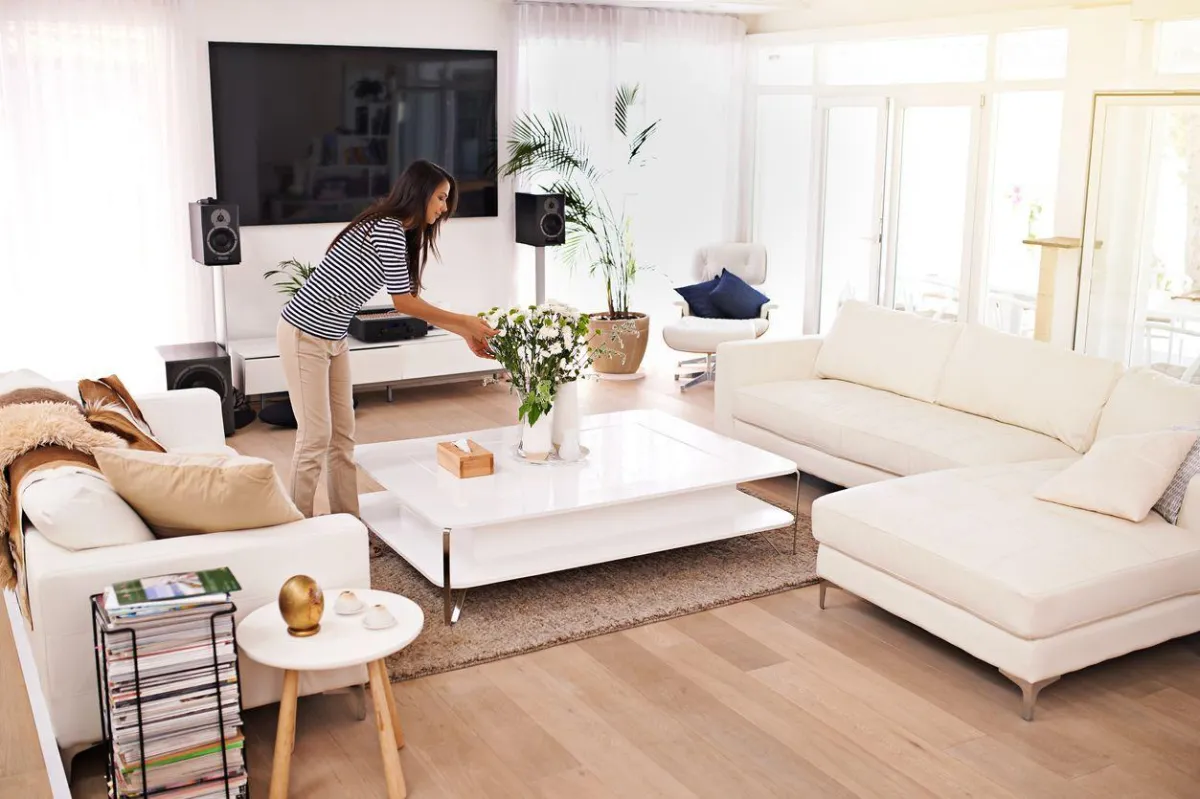
Decorating to Sell vs. Decorating to Stay
Excellent design isn’t just about aesthetics; it’s about purpose. Whether preparing your home for the market or refining it for long-term living, how you approach decorating should reflect your ultimate goal, whether to sell or stay. While both approaches can keep beauty at the forefront, understanding the difference between decorating to sell and decorating to stay ensures your design decisions are intentional, strategic, and well worth the investment.
Decorating to Sell: Design That Creates Desire
When selling your home, the design choices should focus on universal appeal, emotional connection, and highlighting its architectural value. You’re not selling furniture. You’re selling the property and its associated lifestyle and potential.
Neutral, not boring
When you’re listing your home, lean on a refined color palette. This may be warm whites, soft greys, and light taupes. Avoid bold patterns or statement walls that could polarize buyers. Instead, layer texture for depth and interest. This may be linen drapes, boucle chairs, and sisal rugs. Use tone-on-tone styling (ivory on cream, beige with warm wood) to create a soothing atmosphere without risking design fatigue.
Edit ruthlessly
When listing your home, the goal is to make the space feel larger and more inviting. Remove excess furniture and personal items to create a visual breathing room. Buyers want to imagine their lives in the space. Stage each room with a clear purpose. A spare bedroom can become a serene guest suite. Or, an unused nook can become a reading space or writing desk.
Showcase architectural details
Pair architectural details like coffered ceilings, wide-plank hardwood floors, or custom millwork with complementary lighting and minimalist styling to draw attention. Avoid distracting decor that competes with the home’s craftsmanship. Mirrors and curated art can subtly enhance focal points without overwhelming the eye.
Decorating to Stay: Design That Reflects You
When decorating a home you plan to live in for years, the priority shifts to personalization, comfort, and function. An expertly designed space suits your household’s daily rituals, values, and style.
Showcase your story
This is your opportunity to display collected artwork, heirloom pieces, or your personal favorite color combinations. Your home is your space to embrace risk in small doses: a lacquered library, bold wallpaper in a powder room, or sculptural lighting. For warmth and authenticity, layer in vintage finds or artisan-made objects that resonate with you.
Prioritize function with flair
Design your home around how your family lives. That might mean a custom mudroom with charging drawers for devices. Or, a coffee bar in your primary suite to enjoy your first cup of coffee in peace. Perhaps your family could benefit from built-in desk nooks where kids can do homework. Invest in performance fabrics, custom storage solutions, and thoughtful lighting zones to enhance your daily life.
Plan for evolution
Your living needs will shift over time. Children grow, entertaining styles change, and hobbies evolve. To embrace these changes, it’s helpful to design with flexibility in mind. Built-ins with adjustable shelves, modular sectionals, and versatile living spaces can adapt with you. Investing in custom pieces that are beautiful and adaptable is also helpful. This may mean an extendable dining table or a modular media console that doubles as art.
What to do when you’re torn between the two
Are you considering selling but want to enjoy the home in the meantime? In that case, lean into elevated, semi-neutral choices you genuinely love that won’t alienate future buyers. Classic materials like marble, oak, unlacquered brass, and timeless permanent fixtures will create a neutral foundation that resonates with buyers. Then, layer your personality and personal preferences through changeable elements like textiles, art, and accessories.
